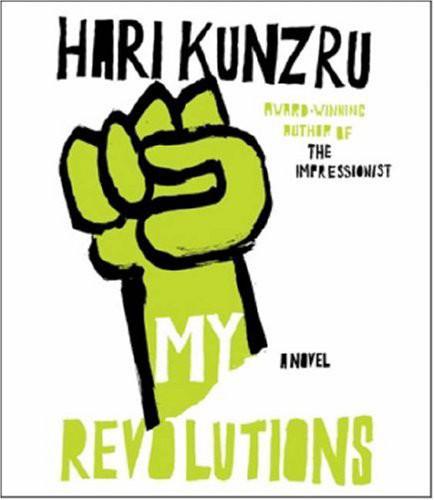
My Revolutions PDF
Preview My Revolutions
An award-winning novelist looks back at the sixties to answer the question "What turns a radical into a terrorist?"
Chris Carver is living a lie. His wife, their teenage daughter, and everyone in their circle know him as Michael Frame, suburban dad. They have no clue that as a radical student in the sixties, he briefly became a terrorist, protesting the Vietnam War by setting bombs around London. Chris believes he has left his past behind—until he sees the ghost of a dead ex-lover. Shortly after, an old friend turns up on his doorstep, wanting to reminisce and hinting at blackmail. Chris must escape all over again.
On the run, he remembers his days as an isolated, idealistic youth, hopelessly in love with Anna Addison, competing for her affections with Sean Ward, charismatic leader of the radical August 14th Group. Ideologies collided and lines blurred until the events of one horrifying night forced them apart forever. Now Chris wonders: Who was he? Who is he? What side was he on back then? Which side is he on today?
From Publishers WeeklySimon Prebble, a consummate professional among narrators, plays Kunzru's middle-aged protagonist, who relates his adolescent-into-adulthood journey that has gradually brought him to his current state of misery. From the outset Prebble helps structure the kind of suspense and tension Kunzru created so superbly in The Impressionist. The story opens at Christopher's 50th birthday party. But he is no longer Christopher; Michael Frame now leads a yuppie suburban family life he describes meticulously and with witty, bitter irony. He exists in a sort of mental crouch, waiting, knowing that even now, in days, or even hours, my life here will be over. Initiated as a 1960s teen into a counterculture, anti-Vietnam, anti-imperialist commune, he falls for the gutsy, freewheeling Anna. Wanting to win her, he ends up blowing up bathrooms and buildings. But he is forever dogged by a creepy childhood acquaintance named Miles, who, in the end, blackmails him into working for the people he always bitterly opposed. Kunzru's descriptions of places and events are sometimes too long and Christopher's lifetime attachment to Anna is a bit hard to swallow. But Kunzru delivers a gripping tale.
Copyright © Reed Business Information, a division of Reed Elsevier Inc. All rights reserved.
Michael Frame lives a comfortable life with his wife and stepdaughter near London until Miles, an old friend from his radical past, drops by and exposes Michael’s true identity. Michael’s real name is Chris Carver, and he was a member of a radical group during the 1960s. Following a series of violent events, Chris fled to England. Miles threatens Michael with legal action and exposure if he doesn’t help with Miles’ political agenda. Experienced British actor Prebble gives his usual polished performance. The narrative is rather convoluted as it jumps back and forth in time, but Prebble keeps it on track, placing Michael’s fears and hopes (as he recounts his past) to the forefront and giving Miles a grating, almost whiny tone. It is easy to follow their dialogue. Prebble reads the radical group’s many manifestos with strident, pompous tones. As the stakes begin to escalate, he readily captures the group’s rising tide of paranoia and Chris’ fear and despair over the direction their actions are taking. --Laurie Hartshorn
